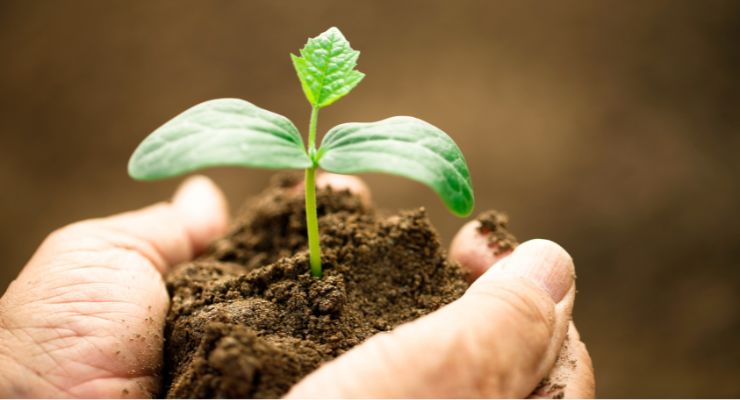11.29.23
ADM has issued its inaugural Regenerative Agriculture Report, which provides a range of detailed information on the company’s regenerative agriculture efforts.
The report lays out how the company defines and approaches regenerative agriculture in multiple regions across the globe, which spanned over one million acres in 2022 and neared 2 million by November 1, 2023.
It also sums up positive outcomes, such as the sequestration of 115,500 metric tons of CO2 and reduction of CO2 emissions by 253,000 metric tons in 2022, which is equivalent to removing over 80,000 cars from the road for a year.
The company aims to enroll 4 million acres into its regenerative agriculture program by 2025, which would have the potential to reduce and sequester a CO2 equivalent to what would be emitted by powering 100,000 homes for a full year.
“As we continue to accelerate our industry-leading global regenerative agriculture program, we believe it is important to report on our progress,” said Greg Morris, president of ADM’s agricultural services and oilseeds business. “This work is critical to our company and to our planet. We’re proud of our progress, and we’re excited to continue to expand our efforts around the globe.”
ADM’s Regenerative Agriculture Strategy
ADM’s principles of regenerative agriculture are based on Indigenous ways of land management and are adaptive to local physical conditions and culture. The principles include: minimizing soil disturbance; maintaining living roots in soil; continuously covering bare soil; maximizing diversity with emphasis on crops, soil microbes, and pollinators; and responsibly managing inputs, including nutrients and pesticides.
ADM will implement and scale its regenerative agriculture working with downstream customers including PepsiCo, Nestlé, and Carlsberg; technology partners like Farmers Business Network, and conservation organizations like Practical Farmers of Iowa, Ducks Unlimited, and American Farmland Trust.
ADM will also participate in industry initiatives and coalitions such as Field to Market, Cool Farm Alliance, and the Sustainable Agriculture Initiative. It will work with partners like the National Black Growers Council to support underserved segments of the industry, and leverage funding opportunities to bring more value through farmers, such as through the National Fish and Wildlife Foundation as well as the USDA’s Partnership for Climate Smart Commodities.
ADM’s regenerative agriculture programs feature direct financial support for farmers, easy processes and cutting-edge technologies to ensure low barriers to entry, and support and guidance from internal and third-party experts.
Earlier this month, ADM issued a report which highlighted the business potential and consumer demand for sustainably-produced products derived from regenerative agriculture.
Just last week, ADM also announced the launch of its regenerative agriculture program in Brazil, which is targeting coverage of 300,000 acres by 2027.
The company will be partnering with the World Climate Foundation at COP28 in Dubai to host a panel exploring the role of cross-sector action and investment in future-proofing agriculture and food systems, and will be featuring regenerative agriculture on the COP Presidency Stage on December 4.
The report lays out how the company defines and approaches regenerative agriculture in multiple regions across the globe, which spanned over one million acres in 2022 and neared 2 million by November 1, 2023.
It also sums up positive outcomes, such as the sequestration of 115,500 metric tons of CO2 and reduction of CO2 emissions by 253,000 metric tons in 2022, which is equivalent to removing over 80,000 cars from the road for a year.
The company aims to enroll 4 million acres into its regenerative agriculture program by 2025, which would have the potential to reduce and sequester a CO2 equivalent to what would be emitted by powering 100,000 homes for a full year.
“As we continue to accelerate our industry-leading global regenerative agriculture program, we believe it is important to report on our progress,” said Greg Morris, president of ADM’s agricultural services and oilseeds business. “This work is critical to our company and to our planet. We’re proud of our progress, and we’re excited to continue to expand our efforts around the globe.”
ADM’s Regenerative Agriculture Strategy
ADM’s principles of regenerative agriculture are based on Indigenous ways of land management and are adaptive to local physical conditions and culture. The principles include: minimizing soil disturbance; maintaining living roots in soil; continuously covering bare soil; maximizing diversity with emphasis on crops, soil microbes, and pollinators; and responsibly managing inputs, including nutrients and pesticides.
ADM will implement and scale its regenerative agriculture working with downstream customers including PepsiCo, Nestlé, and Carlsberg; technology partners like Farmers Business Network, and conservation organizations like Practical Farmers of Iowa, Ducks Unlimited, and American Farmland Trust.
ADM will also participate in industry initiatives and coalitions such as Field to Market, Cool Farm Alliance, and the Sustainable Agriculture Initiative. It will work with partners like the National Black Growers Council to support underserved segments of the industry, and leverage funding opportunities to bring more value through farmers, such as through the National Fish and Wildlife Foundation as well as the USDA’s Partnership for Climate Smart Commodities.
ADM’s regenerative agriculture programs feature direct financial support for farmers, easy processes and cutting-edge technologies to ensure low barriers to entry, and support and guidance from internal and third-party experts.
Earlier this month, ADM issued a report which highlighted the business potential and consumer demand for sustainably-produced products derived from regenerative agriculture.
Just last week, ADM also announced the launch of its regenerative agriculture program in Brazil, which is targeting coverage of 300,000 acres by 2027.
The company will be partnering with the World Climate Foundation at COP28 in Dubai to host a panel exploring the role of cross-sector action and investment in future-proofing agriculture and food systems, and will be featuring regenerative agriculture on the COP Presidency Stage on December 4.




























